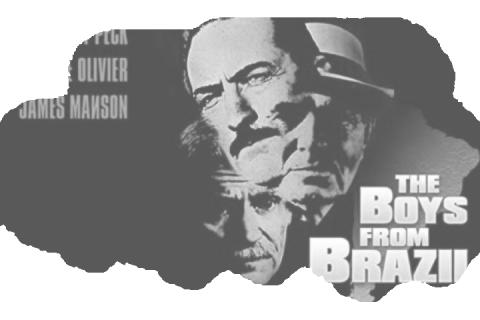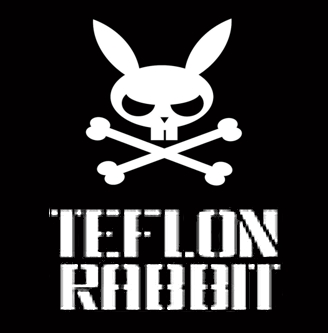The Great Precept

Cultural genocide and the year zero
PDF Version
Precept : noun
1. a general rule intended to regulate behaviour or thought
Example: "the legal precept of being innocent until proven guilty"
The average totalitarian considers progress to be a process whereby the values and principles held by them and their peers become universally accepted by society. There is increasing use of terminology such as "wrong think" and "radicalisation". This indicates that there are a great number of quite delusional people. They forcefully believe that opinions contradicting their own are a legitimate threat to their belief structure and way of life. This totalitarian currency of fear represents the epistemological equivalent of genocidal racism. Human nature is such that if someone can't hate you because you come from a different race, creed or colour then they'll hate you because you come from the other side of the street. They don't understand the people from the other side of the street and like most humans, they fear that which they do not understand. Historically both church and state have espoused the values of 'diversity' in society. The more diverse a society is, the more vibrant the community is. The average consumer doesn't want to have their choices limited by domestic produce. Why limit yourself to jellied eels when you can enjoy Pizza or Falafels? Consequently Metropolitan conurbations have materially benefited from a greater cosmopolitan population than their provincial counterparts. The societal 'melting pot' is economically considered to be the most productive social model. As one of the most developed cities on Earth, London has been the subject of many proud claims heralding the fact that it's multi cultural citizens live 'cheek by jowl'.

Globalism is defined as "the operation or planning of economic and foreign policy on a global basis". It is somewhat ironic that the previously valued melting pot philosophy is considered a major obstacle to the acceptance of globalist values and principles. The dominant attitude appears to be that melting pots are fine as long as everybody in them believes what they're told to believe. When they unsurprisingly do not adhere to a herd mentality due to their cultural differences and alternative viewpoints, they are considered as 'radical' . This justifies them being marginalised by the establishment or persecuted by the sections of society who do conform to the belief structures recommended by the globalist state.
Throughout the historical record there are accounts of conquering forces deliberately eradicating the language, values, traditions and cultural heritage of those being conquered. In the UK alone, there are languages which were widely used prior to the industrial revolution. Currently these languages are subject to revivalist methods in an attempt to stave off their extinction. However, much of the perception of this process has been artificially constructed. A broad overview of linguistic longevity would put the Welsh language at the top of the scale with Scots Gaelic in the middle and Kernow (Cornish) at the bottom. Extensive media programming inaccurately portrays these languages as widely spoken by quaint communities from the provinces. In reality anyone visiting these communities has to go to some lengths to experience any form of cultural immersion or even an organic conversation. As tourism represents a major revenue source for such communities, many condescending plaques and simplistic representations of cultural life litter the environment of once thriving and culturally distinct communities.
Once again, the fringes of exopolitical opinion offer a unique perspective in terms of cultural genocide. The association of an inverted Swastika with a mental image of the most evil empire to ever disgrace the human condition conceals a global and sociological anomaly. Many anthropologists and historians have pointed out that the original Swastika symbol had precisely nothing to do with victimisation or totalitarian goals. The earliest uses of the symbol in architecture and infrastructure indicate that the exact opposite is the case. Instead of a reviled symbol associated with division and oppression, it was actually a symbol used to denote global cooperation. Perhaps the most compelling analysis asserts that the Swastika was a symbolic depiction of basket weaving.
Clearly basket weaving dates from an era predating the industrial or even agricultural revolution. Arguably it even predates the shift from hunter gatherer to agrarian lifestyles. Imagine being able to visit any civilised part of the globe and recognising a symbol which you have seen many times in your homeland and consider to be an established and shared symbol of cooperation. Far from being in an alien land full of people whose language sounds to you as the barking of dogs, you have actually arrived in a place where people have comparable traditions and hold much the same values. Clearly such an empowering and universally acknowledged icon of communal understanding was considered a barrier to division, oppression and resulting profit. Consequently great efforts were made to denounce this symbol thereby reinforcing differences between people of differing languages and cultures.
Deliberately extinguishing cultural differences could be considered as a process which would take decades if not centuries. However this is not accurate. Several Airforces used the Swastika as a symbol on their biplanes up until the late 1930's. After WW2 the world united in a social directive to demonise and suppress any representation (be it inverted or otherwise) of this once global icon. From reformed democratic European governments to Tribal councils in North America, the entire process took less than a single decade. Likewise, the eradication of a language takes only a single generation to create a dominant attitude of disdain. Children taught in schools to consider the native parental language to be 'old hat' or even worse 'wrong think' are unlikely to teach said language to their own offspring. As a result, the values and traditions of the preceding culture are gradually consigned to the philosophical past.

Linguistic differences have been overcome by shared goals as long as records have been kept. However, the spoken word is but one of the communication methods used by homo sapiens. There is a separate language of trust which exists across international borders or cultural boundaries. Animal trainers would argue that this language even crosses species barriers. Unlike linguistics, the global body language of trust is not subject to conscious decision making, but is displayed primarily in facial micro expressions. It is the subconscious use of this body language which is studied by law enforcement to detect deception. Likewise the popular card games collectively known as 'Poker' all require the reading of your opponent's body language. If they display a conspicuous 'tell' by way of a nervous tic or repeated expression when they are making a bet, then you have an understanding of their intent which you can then capitalise on.

The often quoted experiments of Ivan Pavlov were preceded by observations made after his researchers rescued the caged dogs in a flooded laboratory. Due to the trauma of having their heads forced underwater during the rescue, all the dogs changed dramatically in regards to their psyche and behavioural traits. Friendly animals became hostile, aggressive animals became meek and reticent and they all forgot everything they had learned in terms of their reward based conditioning. For the most part, it would be reasonable to assume that these animals retained much of their instinctive capabilities. They would probably still remember to turn around several times before settling in long grass. Their olfactory triggers would still predicate much of their territorial understanding. In order to eradicate this deeper genetic memory, selective breeding becomes necessary. According to a controversial experiment conducted in 1959 on wild Siberian foxes, selective breeding can eradicate wild behavioural traits within six or seven generations. Given the much faster reproductive rate of Canids, humans can feasibly brainwash wild dogs to become domestic pets in less than a decade.

The global population has arguably experienced a major effort to eradicate the learned language of trust in recent years. Those who may have been most profoundly affected are the infants now dubbed as 'the Covid delayed'. A substantial number of researchers are now asking awkward questions regarding the ability of 'pandemic babies' to learn the language of trust from parental or primary carers who had their faces hidden behind surgical masks. It doesn't require much imagination to see the comparisons with the eradication of languages by way of a global cultural genocide. When trust becomes considered as 'wrong think' totalitarian goals have achieved a major victory. If we consider this destruction of the language of trust to have been a deliberate goal as opposed to an unintended consequence, the cultural genocide of the past and the brainwashing of wild dogs becomes exceedingly relevant.
If we consider the potential motive behind cultural genocide pursued by global interests, there is an overbearing factor of economic control. Financial analysts pointed to the financial collapse of 2008 as representing a systematic failure of global currencies. When taken to task on their statements in succeeding years, many explained that a planet wide system of capitalism will not cease to exist overnight. More realistically the inertia created by billions of financial transactions daily, takes a substantial amount of time to run out. Throw in regular actions by governments with such euphemistic titles as 'quantitative easing' or 'austerity measures' and the culmination of this logical depreciation is drawn out even further. With the removal of gold or silver backed currencies and the inevitable reduction of value in fossil fuel, the global economy was backed by debt alone. However the avarice of savage capitalism extends well beyond the here and now. Consequently toxic assets were repackaged into tranches of future revenue yielding products. This repackaging effectively masked much of the downward trajectory of global currencies. The deregulation of the banking industry spearheaded by Margaret Thatcher and Ronald Reagan in the 1980's stands as a significant fork in the road of global capitalism. A fork where the path followed appears to have had major negative ramifications.

There exists in every civilised society, groups whose very reason for existence is to preempt and avoid major civil unrest. It makes for a plausible narrative to accept that many of these groups took the words of the financial analysts in 2008 seriously. So seriously in fact, that they embarked on a global campaign to control the free markets of every capitalist democracy on Earth. But capitalism depends on trust in order to convince customers to purchase goods or services. In addition, the complex system of supply chains adds yet more variables into an already over monetised economic situation. Trust formed between digitally connected citizens of a global society is arguably outside of the control of these groups. This lack of control becomes considered as a contributory factor in potential widespread civil unrest.

If the researchers investigating the Covid delayed are correct, a generation of people unable to speak the language of trust will hit the age of reason in 2030 and be of working age approximately a decade later. The precise purpose of creating such a generation is not particularly clear. The more diplomatic pundit would probably explain it away with soundbytes such as "the cost of rectification" or "evolution of the human race". Less cognitively biased commentators would be more likely to consider this sociologically crippled generation as a ready made under class or even as the perfect button men to usher in a brave new world.
Members of organisations with a direct investment in controlling humanity have often promoted challenging concepts of genetic population control. From the Nazis and their Aryan supremacy obsession, to Bill Gates Senior and his work on the board of eugenics group Planned Parenthood. The prominent Scandinavian state of Sweden practised enforced sterilisation between the 1930's and the 1970's as part of their national eugenics policy. The contemporary attitude toward eugenics is one of disdain. No conceptual definition of 'inclusion' or 'diversity' can actually espouse such institutional elitism without some fairly extensive equivocation and overt hypocrisy.
There have been many allegations aimed at major vaccination programs which blatantly represent accusations of eugenics based agendas. The human trials of vaccinations in African countries are applauded by the pro vaccination camp and slated by the anti vaccination camp. Regardless of ethical opinions on the subject, nobody can deny the substantial financial aspect of these trials.
The lives of the Covid delayed appear to have become tranches of future revenue yielding products, reaching annuity in a couple of decades.
But who are the customers?
